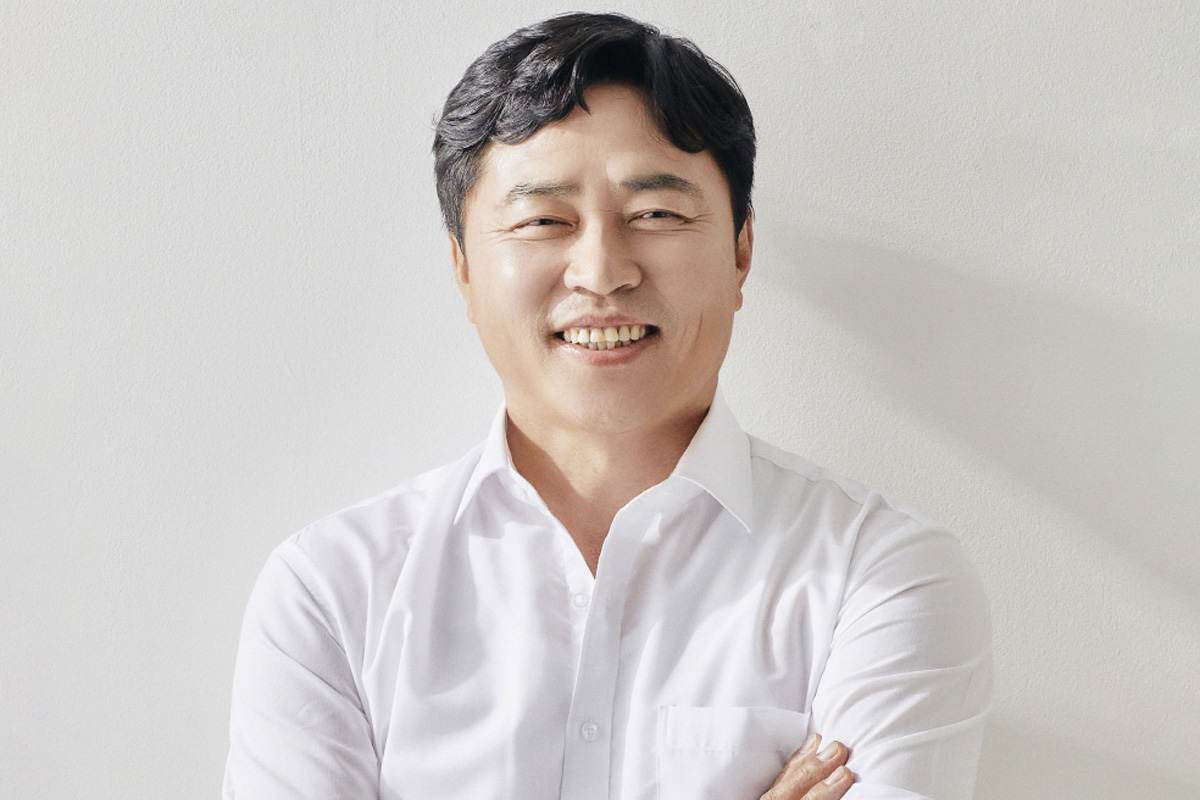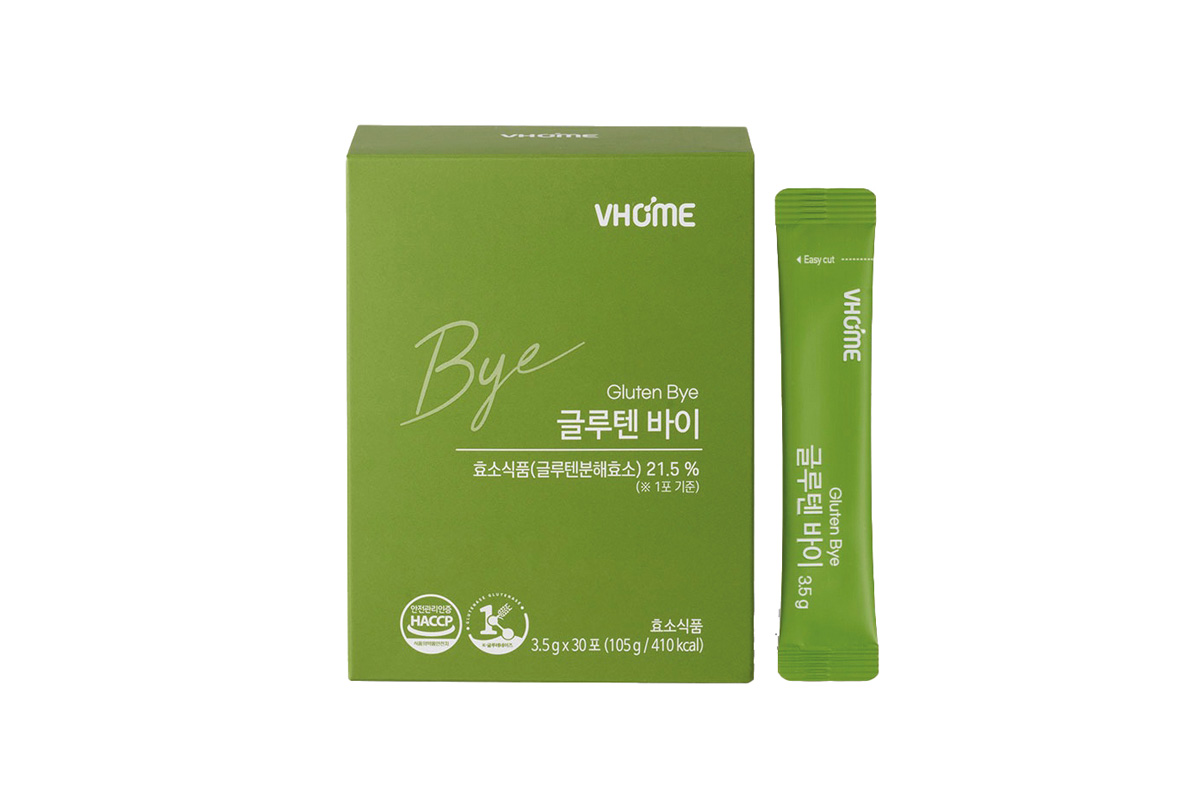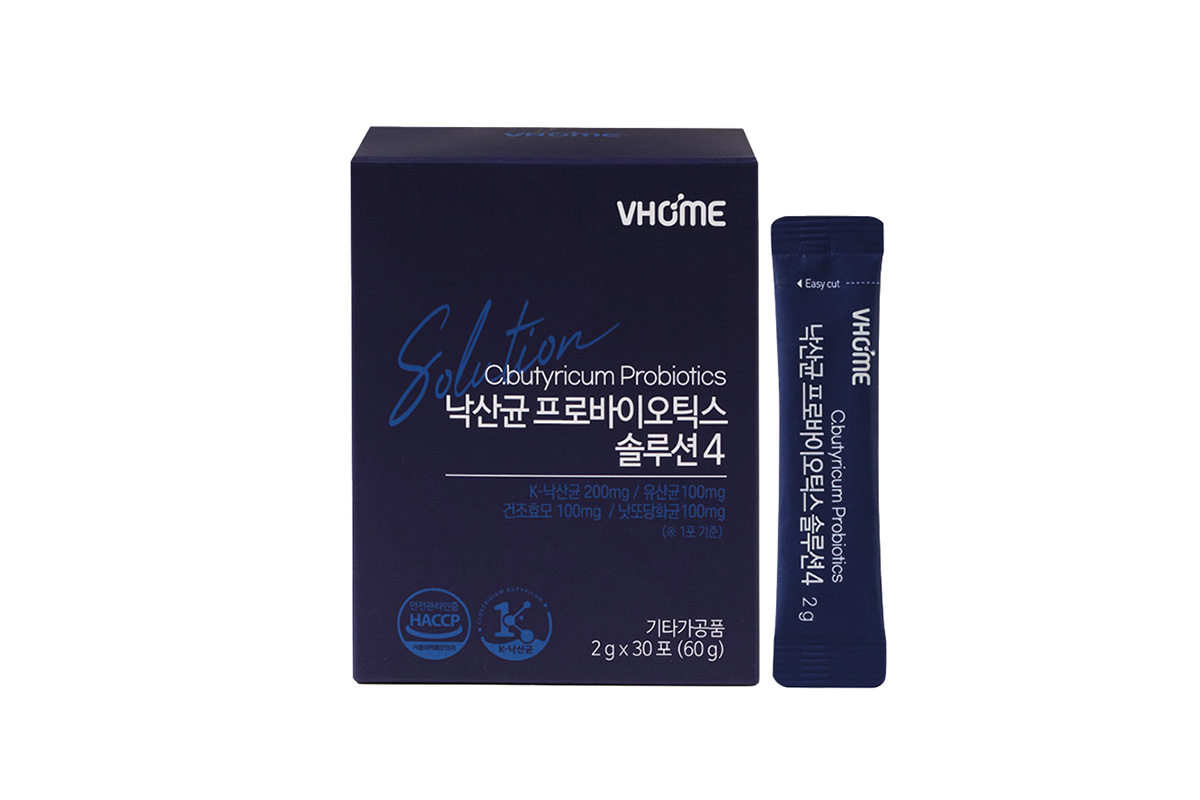With South Korea facing demographic challenges and a growing aging population, NPK emerges as a leader in the health functional food sector, offering innovative solutions without synthetic materials. From tackling labor shortages to harnessing the power of natural ingredients, NPK's vision extends globally, promising a healthier future.

South Korea currently faces a unique demographic situation. On top of becoming the world’s first country to see its fertility rate fall below 1.0, experts estimate that by 2025, more than 25% of the South Korean population will be over the age of 65, turning the nation into one of the first super-aging societies in the world. While this demographic trend presents challenges, it also provides the Korean health functional food sector with a unique opportunity. How does Health Functional Foods (HFF) impact the lifelong health of society?
NPK’s headquarters is situated in Damyang, in the extreme southern part of Korea, where more than 50% of the total population comprises seniors. I would like to delve into the aging society topic, drawing on my experience working in a company located in such a demographic environment.
From my perspective, the aging population challenge can be dissected into two facets. The first is the issue of labor shortage, and the second is the transformation of the core consumer group. At NPK, the average age of our employees hovers around 40 to 50 years old, resulting in an aging core workforce, with most individuals surpassing 50 years of age. While having seasoned employees brings the advantage of skilled workers, it also necessitates the implementation of various automation systems, incurring substantial costs to maintain and support the workforce.
When recruiting younger generations, there are expenses associated with training until their productivity reaches optimal levels. Conversely, senior workers require ample downtime due to their age, leading to additional investments such as health-related costs for maintaining their well-being and the adoption of automation systems for labor-intensive tasks.
As mentioned earlier, medical costs in Korea have surged by approximately 15%. Examining the labor landscape firsthand, our society is evolving into one that demands more resources to sustain the workforce than invest in training and education. This trend is accelerating, indicating a shift in the demand for the labor force in Korea towards the health and medical sector, rather than the education or cultural sectors.
Simultaneously, the COVID-19 pandemic has heightened people's awareness of health products, fostering increased consciousness about immunity within the population. The domestic health functional food market is currently estimated to be valued at 6 trillion won ($4.53 billion) annually, primarily driven by the desire for enhanced immunity during the pandemic. How do you foresee this trend evolving? What factors do you believe will contribute to the continued growth of this trend, and what will be the key drivers for the expansion of health markets?
I previously mentioned shifts in the consumer demographic for the health sector. The predominant workforce in Korea consists of individuals in their 40s and 50s, aligning with the core consumer group comprising those in their 50s, who have achieved financial stability. This alignment signals a potential exponential increase in health-related demand. Although medical costs have currently risen by only 15%, I anticipate that this trend will accelerate in the near future, possibly within a year or two. This acceleration is attributed to the necessity of utilizing individuals in their 50s or even 70s as part of the labor force.
In this context, the consumption pattern or trend of health functional foods is on an upward trajectory. It's crucial to note that the health functional foods market and the medical market exhibit some differences. In the realm of health functional foods, consumption is closely tied to the information provided to individuals. People in their 40s and 50s in Korea possess the ability to naturally assimilate information on health functional foods. They are adept at self-diagnosing their health conditions and possess knowledge about disease prevention. This ability empowers individuals to self-diagnose and self-treat metabolic diseases or issues with their immune systems, fostering the utilization of health functional foods as a form of self-treatment.
People are becoming increasingly health-conscious. However, the comprehension of the true benefits of health functional foods due to the prevalence of synthetic products might remain blurred. In a recent interview, you have elaborated on the objectives and the necessity of embracing more biotechnology or fermented products. What is your perspective on the future importance of fermented, less synthetic, and more natural products?
The evolution of consumer consciousness in Korea is rapid. While I acknowledge that the elderly population may not possess precise information, individuals in their 70s or older typically rely on external sources, such as medical institutions, for information. On the other hand, the core consumer group in Korea, those in their 50s or 60s, is adept at independently acquiring and processing information. They can distinguish between synthetic and natural materials, and despite the challenge, they strive to comprehend the distinctions. Interestingly, they tend to instinctively prefer natural ingredients. An illustrative example is the success story of consumer cooperatives in Korea, such as Hansalim, whose five-year revenue has surged by more than 10 times, indicating rapid growth. This growth is propelled by an innate preference for natural materials.
It has been scientifically proven that fermented products or natural vitamins offer more benefits than synthetic alternatives. NPK boasts a research center specializing in fermented products, particularly in the scientific development of grain-fermented enzymes derived from traditional Korean fermented soybean paste. During the grain fermentation process, various metabolites are formed, and the distinction between naturally-bred and synthetic metabolites becomes evident. The former is deemed much safer and more effective. The fact that natural-fermented metabolites have been consumed by Koreans for the past 5000 years without harm serves as living proof of their safety. In contrast, recently developed synthetic metabolites lack the lengthy history of safety validation. This underscores the notion that natural products can be safer than synthetic alternatives. While it's important to note that not all fermented or natural products are universally safe, the history of fermentation across different countries suggests better overall results.

Gluten Bye
Since its foundation in 2009, NPK has grown to become a leading ODM/OEM producer of health functional foods using organic raw materials. It was the first Korean company to develop and manufacture natural vitamins that are more effective and easier for the body to absorb compared to their synthetic counterparts. More recently, NPK has acquired certification for its Glutenase, an enzyme with the ability to break down or degrade gluten proteins. What role does NPK envision playing in the advancement of health functional foods domestically and internationally?
Allow me to expound on the excellence of fermented products, using digestive medicine as an example. Through fermentation, amylase, protease, natto-kinase, and glutaminase are produced. Notably, there is a discernible distinction between synthetic amylases and naturally fermented amylases. Microbial amylases break down carbohydrates into multiple forms, rendering fermented amylase more digestible by cutting carbohydrates in multiple ways. In contrast, refined amylase is cut in only one direction, precisely the same in certain places.
Regarding our natural vitamin product development, NPK's inception in 2009 coincided with the Subprime Mortgage Crisis and a surge in currency exchange rates. Originally engaged in manufacturing and importing goods from the U.S. and China for sale in Korea, the abrupt changes in the exchange rate prompted a strategic shift. In 2009, we established a factory in Korea to manufacture our own goods and serve as OEM or ODM providers. Recognizing the limitations of this business model, I set the direction for the company, emphasizing technological evolution and research and development of raw material production methods.
To enhance our manufacturing process, we segmented the synthetic vitamin manufacturing process into two types: 1) synthetic vitamin with synthetic additives, 2) synthetic vitamin with natural additives. We then developed a third category: natural vitamin manufacturing. This innovation allowed us to create natural vitamins that are more easily absorbed by the body. Our research on glutenase led to the development of an enzyme capable of degrading gluten proteins, offering a solution for individuals with gluten intolerance.
In terms of our global aspirations, we aim to establish NPK as a leading health functional food company, not just in Korea but on a global scale. We are exploring opportunities to export our products, focusing on markets in Southeast Asia, the Middle East, and Europe. Our strategy involves tailoring our products to meet the specific needs and preferences of each region, leveraging our expertise in natural and fermented health functional foods. Our commitment to innovation and quality positions us to make a significant impact in the global health functional food industry, contributing to the overall health and well-being of consumers worldwide
The use of synthetic materials has been pivotal in enhancing the stability of products and the effective delivery of active components in functional foods. However, NPK has managed to stabilize its products without resorting to synthetic materials. Could you explain how you've achieved this? Furthermore, could you provide an example of a product that demonstrates efficacy without relying on synthetic material stabilization?
Every tablet we produce is crafted without any synthetic materials. These tablets are not only safe but also highly effective, capable of completely dissolving and being absorbed by the body. The absence of synthetic materials such as HPMC, silicon dioxide, or CMC calcium, which are foreign to the body, ensures that our health functional food products are 100% soluble and absorbable.
To illustrate, consider our Calcium Magnesium Vitamin D products, where both calcium and magnesium are substantial minerals. Creating a product that combines these minerals without any binders or SiO2 presents a significant challenge that few companies have successfully addressed. Without proper stabilization, attempts to combine these substances resulted in them breaking or hardening within a day. To overcome this, we embarked on rigorous efforts. Magnesium sourced from Japan, the U.S., and China undergoes processing at varying temperatures. Extreme temperatures, whether too high or too low, cause magnesium to stiffen as it voluntarily absorbs moisture, leading to hardening. After diligent search for magnesium sterilized at an exact temperature, we successfully manufactured a safe Calcium-Magnesium Vitamin D product devoid of synthetic materials. This product has become one of our best sellers in the market.
Your strategy seems to encompass both raw material development and the production of final products such as tablets, foods, and health supplements. Looking forward, which of these two divisions do you anticipate will be a priority, and where do you see the highest growth potential?
Our long-term strategy is focused on business management and operations based on our research centers and laboratories. Moving forward, our aim is to establish a comprehensive system where we not only produce our own raw materials but also manufacture and distribute final solutions using these materials.
Initially, our research centers focused on developing manufacturing technology that exclusively uses natural substances, avoiding synthetic materials. Additionally, we ventured into developing our self-made raw materials. This shift was motivated by the realization that, for the past 15 years, we had relied on imported or externally produced ingredients for our products, resulting in low added value. The more we sold, the less profit we made. This led us to the development of our own materials, despite limited research assets at the time.
Our researchers, primarily specialized in microbiology, prompted us to begin research in that field. Recognizing our resource constraints, we collaborated with local universities and government research institutions. This collaborative approach bore fruit when we successfully developed the technology for Clostridium Butyricum, an exclusive patent-protected material produced only in Korea, Japan, and China.
Our collaboration extended beyond Clostridium Butyricum; we also worked on developing our enzymes. Despite challenges in developing a gluten degradation enzyme, we sought assistance from government research institutions and ultimately succeeded. This collaborative model enabled us to launch various products.
Reflecting on this journey, I've learned that research and development cannot thrive in isolation. R&D is inherently societal, built upon accumulated human history. Therefore, solidarity and cooperation in R&D yield the best outcomes. This understanding underscores the importance of collaboration with government research institutions and local universities, serving as a key direction for our development.

C.butyricum Probiotics
Only three companies worldwide can produce Clostridium Butyricum, and you are one of them. How long do you anticipate it will take for this technology to spread globally? And how do you plan to leverage this health functional food technology in countries where there's a demand for quality products?
We are currently formulating our global marketing strategy, capitalizing on two key strengths of NPK: 1) being one of three companies producing Clostridium Butyricum, and 2) manufacturing grain-fermented enzymes using strains from the fermentation of soybean paste, a traditional Korean method. The enzyme, capable of degrading gluten and generating beneficial substances, is a key product for us.
Clostridium Butyricum, an anaerobic bacterium, thrives in an airless environment, crucial as human intestines lack air. Not many factories possess the technology to cultivate anaerobic bacteria. NPK, however, has successfully cultivated Clostridium Butyricum and is preparing to launch the product in the U.S. We are exporting this product to Dubai and engaging in discussions with Japan.
Anaerobic bacteria are in high demand globally due to limited supply. This strain has the unique ability to directly transform the microbiome in the human intestine into a beneficial one and holds promise for development into a microbiome treatment. NPK is in the process of making this bacterium available globally, initiating FDA registration for the U.S. market. Once approved, we plan to enter the U.S. market earnestly, given its size and potential. Latin America, experiencing rapid growth in the probiotics market, and European countries expressing interest in collaboration, are also on our radar.
Next, I'd like to discuss the strategy for the gluten degradation enzyme. While various grain-fermented enzymes exist, NPK exclusively owns the microbiome-produced gluten degradation enzyme. Offering efficacy comparable to synthetic enzymes, this enzyme boasts safety and positive side effects, including blood clot dissolution, vitamin K2 provision, and improved digestion. We believe this product will be highly competitive globally and can serve as an alternative to synthetic enzymes in the market.
You possess unique ingredients that you intend to incorporate into various functional foods across different regions. How do you plan to achieve this? Are you actively seeking specific distribution partners to integrate your ingredients into their products? How do you intend to leverage your ingredients for our audience, and how can they access these products?
Currently, we are actively seeking reputable partners in the region for distribution.
You mentioned that the U.S. is the largest market for your unique products, including bacteria and green fermented enzymes that can function in both vacuum and sterile environments. Do you believe it is more beneficial to collaborate directly with distributors responsible for distributing your ingredients or to engage directly with functional food manufacturers? What approach do you consider the most effective for delivering the best products to consumers?
Identifying reliable distributors can be challenging, despite the abundance of manufacturers in the market. Our focus is on establishing partnerships with distributors.
Looking ahead, what's the future trajectory for NPK? How do you envision the company ten years from now?
For a company to not only survive but also generate substantial added value in the industry, R&D-based production of self-made materials is essential. Accordingly, we are committed to continuous investment in research and development. We aim to enhance the safety and effectiveness of our products, aspiring to establish a system that facilitates the safe and efficient global supply of our offerings. Additionally, NPK seeks to collaborate with local governments and research institutions to develop superior materials and achieve self-sufficiency. This vision is central to our plans for the future.
0 COMMENTS